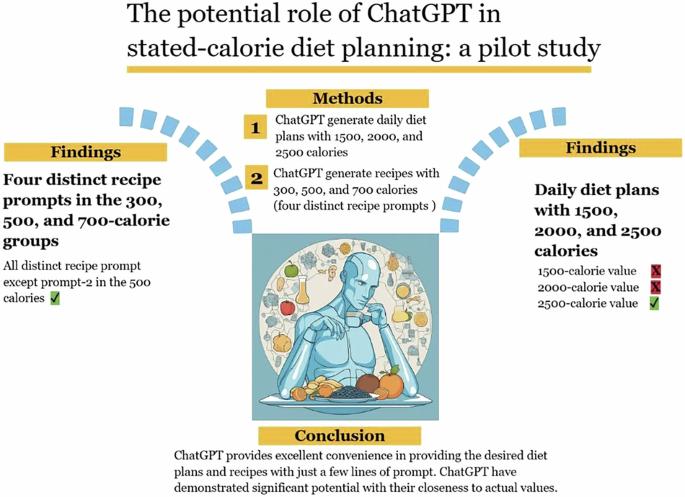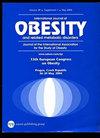A pilot study of the potential role of ChatGPT in stated-calorie diet planning
IF 3.8
2区 医学
Q1 ENDOCRINOLOGY & METABOLISM
引用次数: 0
Abstract
Developments in artificial intelligence encourage society to seek advice from artificial intelligence regarding nutrition recommendations, as in other health issues. There are not enough studies in this field. We hypothesized that ChatGPT would plan meals and daily diet within the specified calories with high accuracy. This study used ChatGPT version 3.5, freely available to the public. ChatGPT was instructed to generate daily diet plans with 1500, 2000, and 2500 calories as well as recipes with 300, 500, and 700 calories (four distinct recipe prompts were utilized for each calorie group). The calories of the resulting recipes and diet plans were calculated using nutrition databases and compared with the actual value. Only prompt-2 in the 500-calorie group showed a significant change (p < 0.05), although there was no significant difference in the four distinct recipe prompts in the 300, 500, and 700-calorie groups (p > 0.05). Among the diet plans provided by ChatGPT, there was no significant difference between the values of the 2500-calorie group and the actual calorie values in the control group (p > 0.05). According to these results, ChatGPT is more successful in creating recipe with the desired calories than daily diet planning. In this study, the calorie values of the diet plans and recipes provided by ChatGPT have demonstrated significant potential with their closeness to actual values. Further studies are needed to evaluate the reliability of ChatGPT in terms of nutritional science and the consumability of the recipes it provides.

ChatGPT在规定卡路里饮食计划中的潜在作用的初步研究。
背景/目标:人工智能的发展鼓励社会就营养建议和其他健康问题向人工智能征求意见。这个领域的研究还不够。我们假设ChatGPT将在指定的卡路里内以高精度计划膳食和日常饮食。研究对象/方法:本研究使用ChatGPT 3.5版本,免费向公众开放。ChatGPT被指示生成1500、2000和2500卡路里的日常饮食计划,以及300、500和700卡路里的食谱(每个卡路里组使用四个不同的食谱提示)。通过营养数据库计算出食谱和饮食计划的卡路里,并与实际值进行比较。结果:500卡路里组中只有prompt-2有显著变化(p < 0.05)。在ChatGPT提供的饮食计划中,2500卡路里组的数值与对照组的实际卡路里值无显著差异(p > 0.05)。结论:根据这些结果,ChatGPT在创建具有所需卡路里的食谱方面比日常饮食计划更成功。在本研究中,ChatGPT提供的饮食计划和食谱的卡路里值与实际值接近,显示出显著的潜力。还需要进一步的研究来评估ChatGPT在营养科学方面的可靠性和它所提供的食谱的可消耗性。
本文章由计算机程序翻译,如有差异,请以英文原文为准。
求助全文
约1分钟内获得全文
求助全文
来源期刊

International Journal of Obesity
医学-内分泌学与代谢
CiteScore
10.00
自引率
2.00%
发文量
221
审稿时长
3 months
期刊介绍:
The International Journal of Obesity is a multi-disciplinary forum for research describing basic, clinical and applied studies in biochemistry, physiology, genetics and nutrition, molecular, metabolic, psychological and epidemiological aspects of obesity and related disorders.
We publish a range of content types including original research articles, technical reports, reviews, correspondence and brief communications that elaborate on significant advances in the field and cover topical issues.
 求助内容:
求助内容: 应助结果提醒方式:
应助结果提醒方式:


